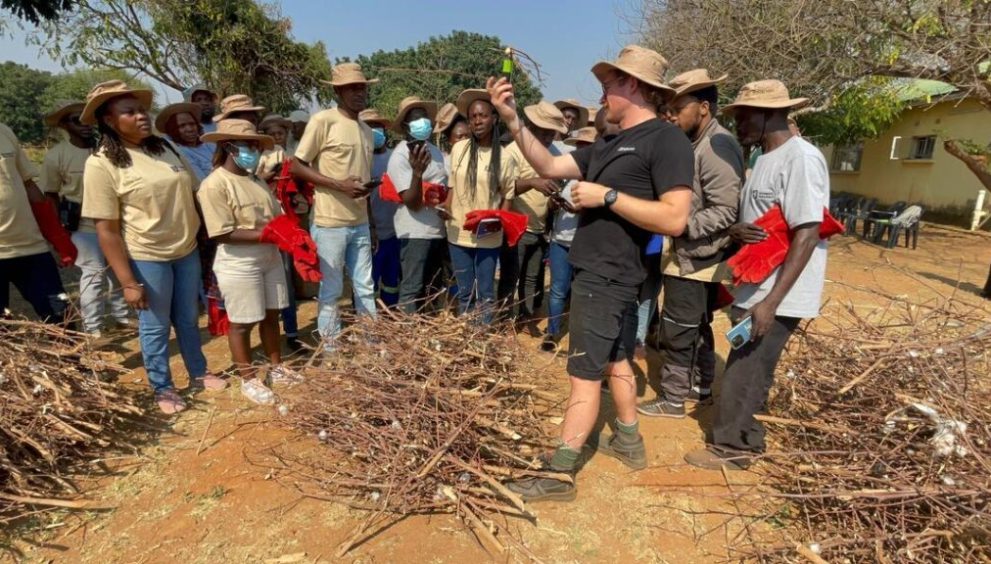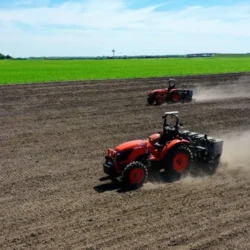By Joshua Kamanga
Zambia: A ground-breaking alliance between Solidaridad Southern Africa, Kvuno, and Planboo is bringing the ancient practice of biochar production to Zambian smallholder farmers, offering a potent solution to soil degradation and climate change. This innovative partnership is empowering farmers with the knowledge and skills to transform agricultural waste into a valuable soil amendment, promising improved yields and a more sustainable future.
Biochar, a form of charcoal produced by heating plant material in the absence of oxygen, has been used for centuries to enhance soil fertility. Now, it is being reintroduced as a vital tool in Zambia’s fight against climate change. The process, known as pyrolysis, captures carbon within the biochar, effectively reducing greenhouse gas emissions while enriching the soil with essential nutrients and improving water retention.
“Biochar represents an important step toward sustainable agriculture in Zambia,” says Shungu Kanyemba, Managing Director of Solidaridad Southern Africa. The organization is already promoting biochar use in Ghana’s cocoa sector and is now extending its benefits to Zambia’s cotton industry through the Pathways to Prosperity (P2P) programme.
Planboo, a specialist in biochar solutions, brings its expertise in scalable production technology to the partnership. “Biochar is more than just a soil enhancer; it’s a tool for climate action,” explains Eilidh Dempsey, Supply Coordinator of Planboo. “By adopting biochar technology, Zambian farmers can increase their crop yields, remove thousands of tonnes of CO₂, and generate vital carbon finance in the region.”
Kvuno, a social enterprise focused on connecting farmers with sustainable technologies, provides crucial training on climate-resilient practices, including biochar production. “Kvuno is committed to equipping farmers with tools that transform their livelihoods,” says Lydia Banda, Regional Operations Lead at Kvuno. “This partnership will enable farmers to improve soil health, increase yields, and benefit from carbon credits. It’s a win for both the environment and the community.”
The P2P programme, funded by the Netherlands Ministry of Foreign Affairs, aims to improve production practices, enhance market access, and support service provision for Zambian farmers. By integrating biochar production with other sustainable techniques like intercropping and conservation farming, the initiative is addressing systemic challenges and promoting fair access to knowledge, skills, and markets.
The collaborative effort emphasizes the urgency of implementing sustainable solutions. “Our shared goal is to create a lasting impact on agriculture and climate change, but time is of the essence,” Kanyemba warns. The widespread adoption of biochar, coupled with other climate-resilient farming practices, promises to significantly improve the livelihoods of Zambian farmers while contributing to a healthier planet.




